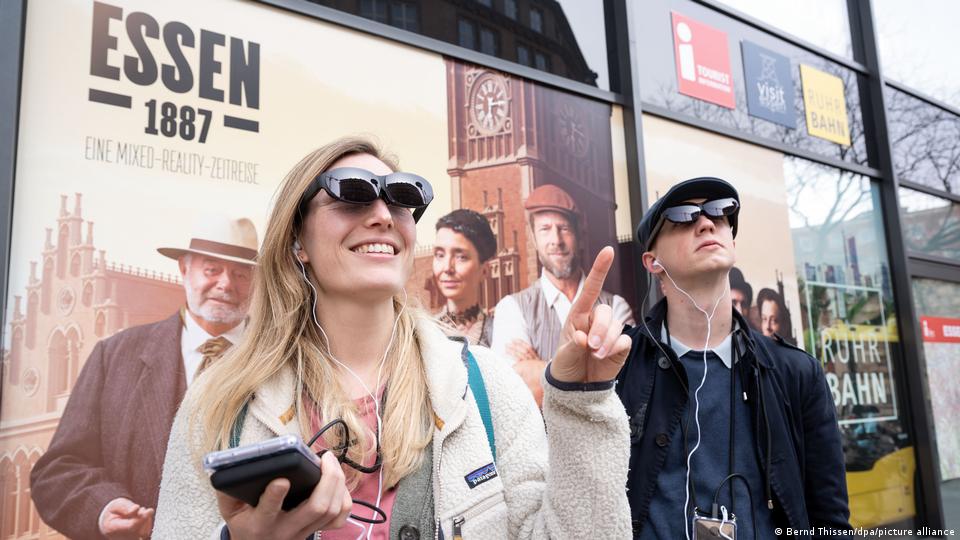The COVID pandemic catalyzed a major digitization force in Germany’s tourism enterprise. But at the same time as vast development has been made, workforce shortages pose a chief venture.
The Shift to Online Tourism
In this day and age, making plans and booking a vacation on the net has come to be the norm. So is trawling social media systems like Instagram and YouTube for excursion idea.
As a end result, to live competitive, tour groups and motel chains should keep up with the digital age and ensure potential holidaymakers can find and e book their offerings on-line. The German tourism enterprise, however, has been gradual to embrace the virtual answers. When the COVID pandemic hit, however, many have been left without a desire however to go virtual.
Pandemic kick-begins digitization
When pandemic-associated tour regulations made it hard to tour overseas in 2020 and 2021, many Germans opted to spend their vacations within Germany. During the warmer months, German beaches have been filled with holidaymakers, and lots of campsites and motels have been booked out for weeks. On pinnacle of that, many organizations working within the traveller region started advertising and marketing their offerings on line. “The covid pandemic forced and satisfied small businesses particularly to embody digitization,” a spokesperson for the Federal Association of the German Tourism Industry (BTW) tells DW.
Hotels and restaurants introduced a spate of innovations, which include digital menus, online reservation and reserving structures, in addition to touch-much less test-in alternatives. A 2021 survey by the German Tourism Association (DTV) determined that eighty four% of businesses stated the pandemic had spurred virtual transformation within the enterprise.
Tourists travelling Germany’s East Frisian Islands can now, as an example, use a unique app to check-in and out of resorts, or e book eating place tables. Guests wishing to ebook and pay for a seashore chair alongside Germany’s famous North Sea or Baltic Sea coast can accomplish that on-line. And vacationers heading for spa towns can now buy virtual traffic’ cards, entitling them various discounts and unfastened beach get entry to.
While progress has been made in some regions, Germany nevertheless lags behinds in others. Take cashless bills, as an instance. While card bills are widely commonplace in Denmark, Poland and Lithuania, many German companies nevertheless run on cash.
When out and approximately in rural Germany, you are also likely enjoy bad cellphone reception, gradual net, and a dearth of public wifi.
Traveling again in time
Overall, however, Germany’s tourism quarter seems to have awoken from its analog slumber and is embracing the digital age. Almost overnight, many commercial enterprise have begun advertising and marketing their offerings on line, investing in mobile-first and social media structures, and the usage of Instagram as a marketing tool. Some are even growing new gadgets and technologies to tug in new clients.
City advertising and marketing corporations in Munich, Bamberg and Wolfenbuttel, for instance, now offer virtual excursions to attract potential vacationers. The town of Essen, in Germany’s some distance-west, started out jogging hybrid tours that combine digital and analog elements in 2021. Visitors don digital truth goggles, which music their GPS region, showing them what Essen town existence changed into like within the overdue 19th century.
Other organizations provide comparable history tours of Cologne. Sign up with TimeRide Go!, and you could revel in sure components of Cologne as they were decades ago way to special virtual truth glasses.
Airbnb, the popular accommodation platform, also offers digital cooking training, and on line-simplest excursions of well-known landmarks, inclusive of India’s iconic Taj Mahal palace. Travel companies also are letting customers explore capability excursion locations with digital truth goggles. All this facilitates entice and retain customers.
Managing traveller flows
Traveling round Germany has become lots simpler in current years way to new digital technologies. Some are carried out to better manage tourist flows and keep away from overcrowding of roads, traveller points of interest, seashores and so forth.
When loads of German holidaymakers streamed to the North Sea coast within the summer of 2020 and 2021, crowding seashores, government discovered themselves stressful about the way to make certain social distancing to save you the spread of COVID-19.
They then tasked a advertising and marketing employer with growing a digital site visitors light machine indicating how many humans are frequenting local beaches at any given time. Laser sensors register the number of beachgoers and automobiles in an area, then translate this statistics right into a simple, color-coded traffic mild heuristic reachable on-line and displayed on local monitors. This manner, people at domestic, and nearby, can pick less frequented beaches to avoid overcrowding.
Challenges Remain
Germany’s Hotel and Restaurant Association (DEHOGA) says some commercial enterprise nevertheless, however, have a tough time integrating digital technologies into their current infrastructure. Two motives explain this slow uptake, in line with enterprise association DTV: A loss of budget and said team of workers shortages. The latter has meant that organizations lack employees with the important information to supervise such changes.
That stated, now not all offerings ought to or must be shifted on line. The vacationer exchange is built, after all, on interpersonal encounters, hospitality, brick-and-mortar inns and restaurants, outstanding meals and pleasant smiles. After all, this is what holidays are clearly all about.
